Note
Somebody on reddit started telling everyone that Sima Ai was in on Sima Wei’s whole ‘murdering Sima Liang for reasons’ and thus for the crime of ‘being Sima Wei’s brother’ shares culpability for the eventual mess.
The argument goes that if Sima Ai was emperor, he wouldn't have been betrayed out of fear of regiciding.
No, he would have been betrayed for being a usurper instead.
11 notes
·
View notes
Text
Before the War of Eight Kings, Part 1
Just posting this to get it out of the way, I didn’t even manage to get to the death of Emperor Wu. Opinions are my own. I make no excuses.
Keep reading
16 notes
·
View notes
Note
Source on the identities? I haven't seen them listed anywhere.
The pieces can be put together with context clues and their class information on the steam page.
The first scene after the courtyard is clearly the assassination of Sima Liang and Wei Guan, which was done by Sima Wei.
Sima Ling is the only Strategist, making him the one in bright blue.
Sima Yue is the only Sentinel, making him the one in indigo. The trailer also more or less begins and ends with his perspective, which makes sense since he is the closest there is to a “winner.”
The only other person in green is the nice looking guy trying to save people, which means he’s Sima Ai.
The person attacking Sima Ai in the siege who isn’t Sima Ying would have to then be Sima Yong, which makes sense as he’s the remaining vanguard.
Sima Lun is definitely the shifty looking guy glaring at everyone because he’s a prick.
We see Sima Lun attacking Sima Ying and another person, who would have to be Sima Jiong.
5 notes
·
View notes
Text
If You’re Wondering Who is Who in the Trailer
Sima Liang - Prince of Runan

Sima Wei - Prince of Chu
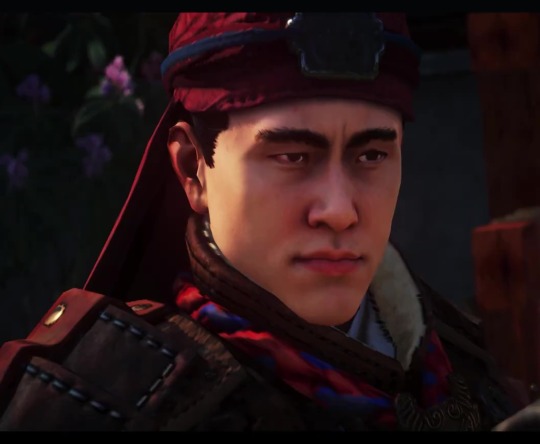
Sima Lun - Prince of Zhao
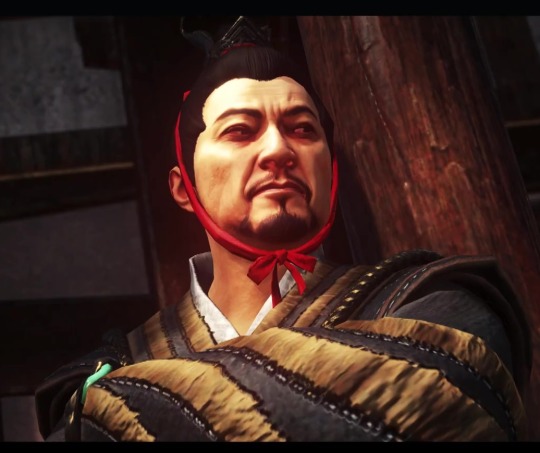
Sima Jiong - Prince of Qi
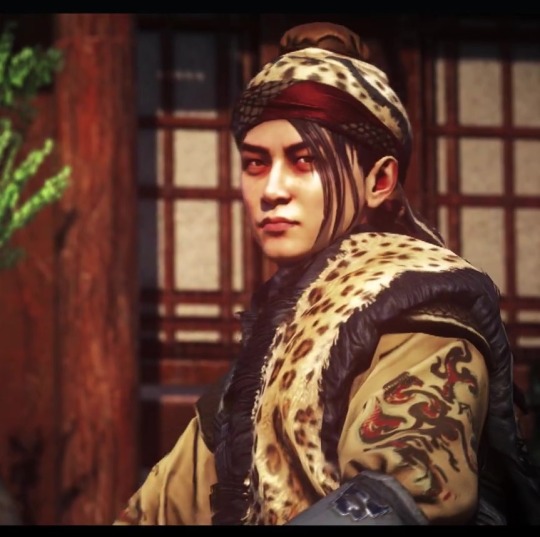
Sima Ling - Prince of Chengdu
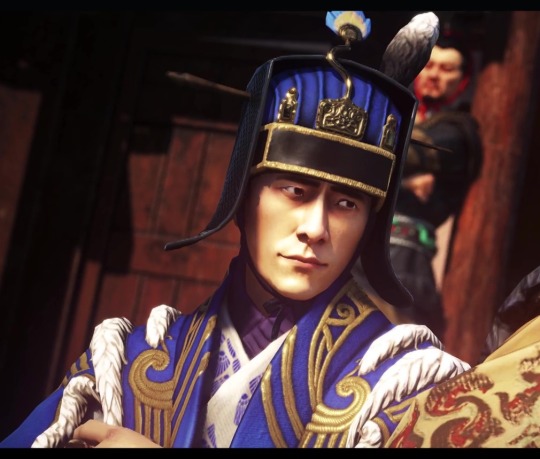
Sima Yong - Prince of Hejian
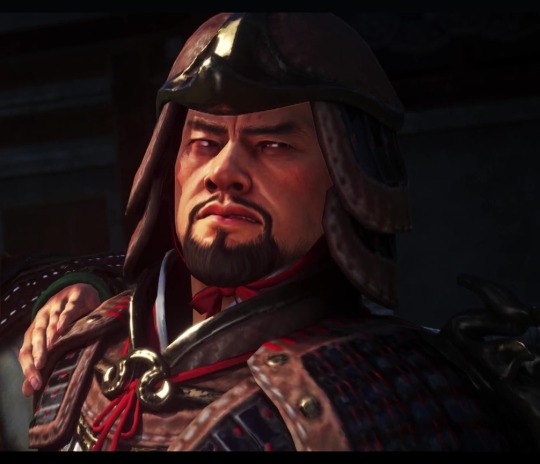
Sima Ai - Prince of Changsha
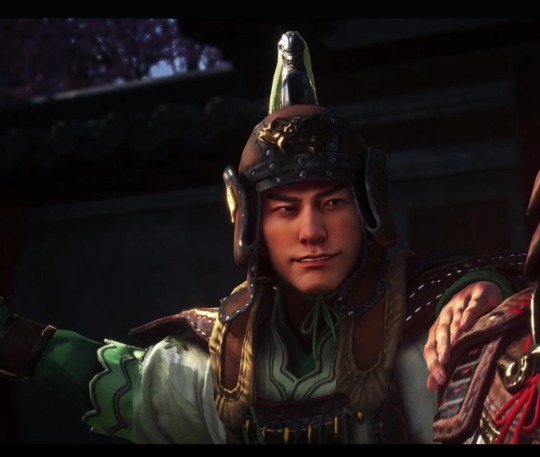
Sima Yue - Prince of Donghai
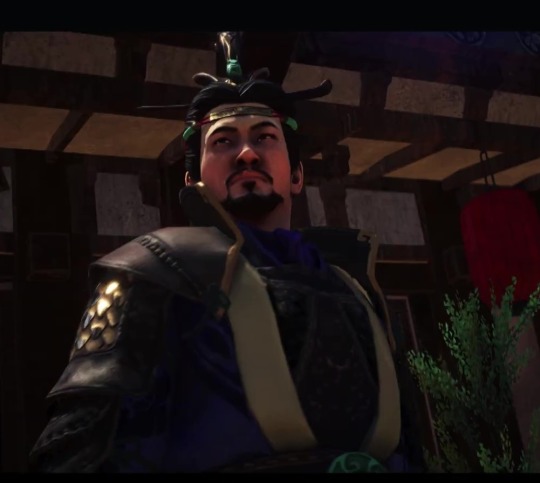
And the woman we see briefly at the end is almost certainly Empress Jia Nanfeng.
22 notes
·
View notes
Text

So, yes, I have been informed. Longer thoughts to come later. Initial reaction:
*Holy shit.
*Never thought I’d see the day.
*Literally the best expansion we could possibly get
*This is now, officially, the best game about this period
*Justice for Sima Ai
*Please don’t read my old article about this, it’s so bad.
*I will write thoroughly about this pending research
*For now please direct all questions about this war to @daolunofshiji @bookofjin and @fuyonggu etc. They know more than me about this.
*I am hyped.
10 notes
·
View notes
Note
Hello! I have been following you on Reddit. Your comments have been of great understanding in which I must thank you for. I would like your opinion in regards to the controversial "loan" of Jingzhou. You might be aware of Xiahou Mao who argues in favor of Shu (or from a Shu standpoint) and believes that Lu Meng's and Wu's betrayal was throwing out the balance of power in the recent Southland post. I would like to gain more perspective on the topic.
Ah, the Jingzhou question.
For starters, the “loan” itself was almost certainly a face saving spin put on by Sun Quan after the plans to conquer Yizhou fell through. Liu Bei had gotten de facto control of most of the Jingzhou territory south of Jiangling following the battle at Chibi, a position that Sun Quan originally confirmed due to his need to maintain a united front against Cao Cao. The death of Zhou Yu shortly before had also weakened Sun Quan’s hand in in the west, and his position within Nan and Jiangling ended up incredibly exposed from both north and south. Liu Bei’s visit to Sun Quan’s court to request the remainder of Jingzhou in 209 may have actually contained a veiled threat that if Sun Quan didn’t turn over these territories, Liu Bei would take them. If there was any agreement about the timetable of ownership, both sides almost certainly understood it to be farcical in nature. Liu Bei certainly had no intention to give up any land he acquired, and Sun Quan probably had no expectation that he would.
That being said, Liu Bei’s claim on the province therefore rested on the fact that Sun Quan had acknowledged it in some respect. Whether made permanently or temporally, Liu Bei had no other authority backing him except his own, which meant that if Sun Quan ever withdrew his support, the question could only really be answered by force. There was the question of the alliance, but the whole thing had been on shaky ground almost immediately after Chibi, especially since it was obvious that Sun Quan was not gaining nearly as much out of it as Liu Bei was. In reality, the spirit of the alliance was broken long before the letter of it was.
So on the topic of force, was the Wu takeover of Jingzhou a strategic error? The answer relies on the question of what Wu’s aims were.
If they were merely trying to remove Cao Cao from his power over the Han imperial court (as Liu Bei was), then there’s a decent argument to be made that attacking Liu Bei was counterproductive. Though Liu Bei was an untrustworthy ally at best, he wasn’t quite the same immediate threat that Cao Cao was. Going to war with the only other warlord to share your goals just to improve your own personal position would be cutting off your nose to spite your face.
I would posit however, that who controlled the Han court was of not a factor in Sun Quan’s larger plans. Rather, the majority of his work seemed to be dedicated to making the south an independent entity from any force to the north. So long as Cao Cao couldn’t project power south of the Yangtze, there wasn’t a need to destroy and replace him. Sun Quan’s recognition of Cao Cao’s suzerainty shortly after the Ruxu campaign in 217 very much shows this. In this situation, the balance of power changes. Sun Quan’s aim becomes not to strike north, but to consolidate the south against the north. This is where Liu Bei’s hold over Jingzhou becomes a problem.
Simply put, there’s no scenario where Liu Bei holding Jing works out well for Sun Quan. If Liu Bei’s northern offensives are successful, Sun Quan will eventually have to either fight or submit to a much stronger Liu Bei who is on his doorstep and has inroads into his lands. Liu Bei would have had no more inclination to let him be independent than Cao Cao would have, especially since their relation ended up strained almost immediately. If Liu Bei’s northern offensives aren’t successful, then there’s a very good chance that a counteroffensive by Cao Cao will allow him to invest south of the Yangtze, providing a base for him to strike east against Sun Quan while bypassing Sun Quan’s biggest advantage. If Sun Quan wants to be secure in his holdings, he needs to hold as much of the southern bank of the Yangtze as possible. Any stalemate would just prolong the question and raise the chances that one of the two would turn on him first.
Finally, Sun Quan has a massive diplomatic advantage in flexibility. He could reasonably align himself with either side and still come out on top. Liu Bei and Cao Cao would never unite against him, partially due to their competing claims about the Han, partially due to their personal enmity. Liu Bei especially had very little hope of taking on both Cao Cao and Sun Quan for long. His Yiling campaign was founded on fortuitous timing with the deaths of Sun Quan’s senior commanders in 219 and of Cao Cao in 220, but even that would have been near impossible to keep rolling for long enough to conquer the gargantuan territory of Sun Quan before Cao Pi threw his hat in the ring to the west and north. Ultimately then, no matter the outcome of the Jingzhou attack, Sun Quan could maneuver his way at least back to his original position, if not stronger, because Liu Bei and the rest of Shu needed him far more than he needed them.
So in summary, given what Sun Quan was trying to achieve, it’s hard to see what balance of power was at risk with this “betrayal.” Almost any reasonable outcome would at least end with Sun Quan back where he started, if not even stronger. Historically of course, we know that it paid huge dividends for him. Seeing it as a setback requires looking at it from Liu Bei’s perspective of removing Cao Cao and reuniting the Han under himself, but that was almost definitely counter to Sun Quan’s goals.
13 notes
·
View notes
Note
You are writing a novel?
Nah, I just make maps and ruminate on video games and history. Those take up enough time as it is. I doubt I’ll ever have enough time for novel-writing. Maybe after retirement, if the world hasn’t ended by then.
3 notes
·
View notes
Text
On This Day, 1799 Years Ago, Xiahou Dun Passed Away
He died peacefully after a lifetime of loyal service to his state and family. Two months prior, he had been promoted to General-in-Chief under Cao Pi, as Cao Cao had died the previous month. While perhaps not the best field commander, he was an excellent administrator and brave soldier.
100 notes
·
View notes
Text
In my opinion, the biggest whitewashing job the novel ever did when one combines scope and severity.
Total War Starting Factions History/Novel: Ma Teng
Intro: Ma Teng, from cutting wood to a leading figure in the divided Liang warlords turned into a Han loyalist by the novel. The overview of the faction’s history (one can skip to bio’s if just for the individuals), biography of ruler and the Guanxi relations (Han Sui and Ma Chao), Extremely potted biographies of around three paragraphs, then segment on the differences between novel and the historical figure before finishing with modern day views.
Next will be Sun Jian the great general whose children founded a dynasty that changed history of China forever.
Keep reading
16 notes
·
View notes
Note
Out of curiosity, how much do you forgive something for deviating from source material for the purposes of gameplay or time? For example, Sanguo completely excising Jia Xu because Wan never came up and there didn’t seem to be room for him, or how in some of the recent DW games you have Guan Yu successfully take Fan but now be besieged by Wei and Wu forces (as a change from previous games where he was the beseiger)
That really depends on what gets changed.
I’m of the opinion that the most important thing is to represent people correctly, if not necessarily the events in which they participated. Now, of course, the best way to do that is to present the events of their lives accurately. But this isn’t always possible. So it’s a question of how much you can change while keeping the important parts intact.
Does the change make a good person look bad? Or an inept person look skilled? Does it make someone wise look foolish, or someone cruel seem benevolent? Do they alter the context of a different, unaltered event in such a way as to make the second event seem different?
Things always change in adaptation. You have to make sure changes don’t misrepresent the people involved.
Addressing the specific examples: I’m a bit biased against cutting Jia Xu because he’s one of my favorite historical “characters”. And he’s one of the main characters of my Jian’an novels. So it seems really weird to do the story without him. I guess you can if you dance around all the events in which he was important, but it’s certainly not the decision I would make. I went all in on Jia Xu.
DW having Guan Yu successfully take Fan is an example of making someone inept look skilled; and making someone skilled look inept. Because despite having his armies outside of the city wiped out, despite having floods damage the walls, despite morale plummeting, Cao Ren still held out. He took everything Guan Yu could throw at him, and everything nature itself could, and he stayed standing. So giving Guan Yu the city for the sake of convenience is a bad move. It misrepresents the people involved.
8 notes
·
View notes
Text
Probably the most stable release in the series.
In about 80 hours across two campaigns, the only bugs I noticed were a couple of odd duels in Romance mode where one or both fighters never took any damage, a chance of having children bug in my first campaign that wasn’t present in the second, and a single CTD on an end turn sequence that never came up again.
How’s TW:3K glitch-wise
5 notes
·
View notes
Photo





This one took ages, but I finally finished the Dong Zhuo campaign on Very Hard, Romance Mode.
The big man himself died about a decade in from natural causes, since I just let Lu Bu have Diaochan all to himself. I ended up marrying Zhang Liao into the family as well, to my new faction leader Dong Li. Sima Yi eventually popped up as well, so I married him to her sister and bringing in Sima Fu to keep him happy as well.
I ended up vassalizing both Liu Bei and Liu Zhang before annexing them. Liu Zhang was never really that strong, so that was somewhat easy with Dong Zhuo’s coerce mechanic, and he actually turned out to make a good prime-minister (+50% food factionwide). Liu Bei did the Yuan Shao thing and vassalized half the country early in the game. He was probably the strongest faction around, then almost all his vassals turned on him at the same time, so he ended up coming to me for protection. Poached Zhao Yun after defeating and releasing him enough times, and Wei Yan just turned up on my door one day, so I made him one of my all-stars.
So now the Dong clan are the imperial sovereigns of Zhou. I executed both Cao Cao and Sun Jian, bought the "loyalty” of the Sima and Liu clans, and generally crushed everyone wholesale.
9 notes
·
View notes
Text
TW3K First Patchnotes
Reduced Yuan Shao’s desire to vassalise every faction under the sun.
They’re doing my boy dirty.
Generals without the Cruel trait will no longer trigger the Flogging the Troops event. This means Liu Bei will no longer receive this event
Of course Liu Bei doesn’t flog the troops. He has people for that.
The event that causes Zhao Yun to join Liu Bei’s faction now triggers correctly
Shame. I was enjoying him constantly ending up in the strangest places. He was with the Shi clan in Vietnam back in my Cao Cao game. Zilong’s Bizarre Adventure.
Reduced the probability of the Dong Zhuo Dies event triggering
Yessssssssss
5 notes
·
View notes
Note
Well it doesn’t seem like he intentionally did so. Given what else happened during the Siege of Chengdu, it’s likely that a whole lot of civilians probably died anyways when the city fell and his men looted the place, because that’s kinda what armies did.
Liu Bei never put cities to the sword.
Big ears. Crook. Villain. Sandal maker. Mat weaver.
9 notes
·
View notes
Text
Total War Starting Factions History/Novel: Shu/Liu Bei
Intro: Liu Bei, a sandal-seller who led his small band across the land before founding a dynasty to the west. The overview of the faction’s history (one can skip to bio’s if just for the individuals), biography of ruler, Guan Yu and Zhang Fei, Extremely potted biographies of around three paragraphs, then segment on the differences between novel and the historical figure before finishing with modern day views.
Next will be Liu Biao, scholar and ruler of Jing, a haven for scholarship though perhaps not quite the peaceful place of repute.
Note: Because this applies to all three officers, Liu Bei, Guan Yu and Zhang Fei, as subordinates of Gongsun Zan, were not part of the coalition and did not duel Lu Bu 3v1. There also wasn’t a peach garden oath of brotherhood but they were as close as brothers and nobody objects to them being called brothers. They didn’t have three special weapons, the double swords, Blue Dragon and the Serpent Pike.
In terms of kingdom naming, they called themselves the Han as they argued they were the legitimate successors, Wu and Wei called them Shu based on where they were based. Historians tend to use Shu-Han to differentiate from Early and Latter Han dynasties, people tend to use Shu for short.
Keep reading
24 notes
·
View notes
Text
Cui Hao’s Appraisal of Zhuge Liang
Cui Hao was a prominent minister under Emperor Taiwu of Northern Wei.
This conversation probably took place around 430 AD, about two hundred years after Zhuge Liang’s death. The source is Mao Xiuzhi’s biography in the Book of Northern Wei. Mao Xiuzhi’s father had been Inspector of Yizhou around 405 AD, so even “the elders” of Yizhou would not have been alive before Zhuge Liang’s death by then.
I assume the reference to 棄荊州 “abandoning Jingzhou” was in the wake of Liu Biao’s death, not the later loss to Wu.
Keep reading
13 notes
·
View notes
Note
Wen Chou is the key to all this.
Because he’s secretly a Sith lord.
2 notes
·
View notes